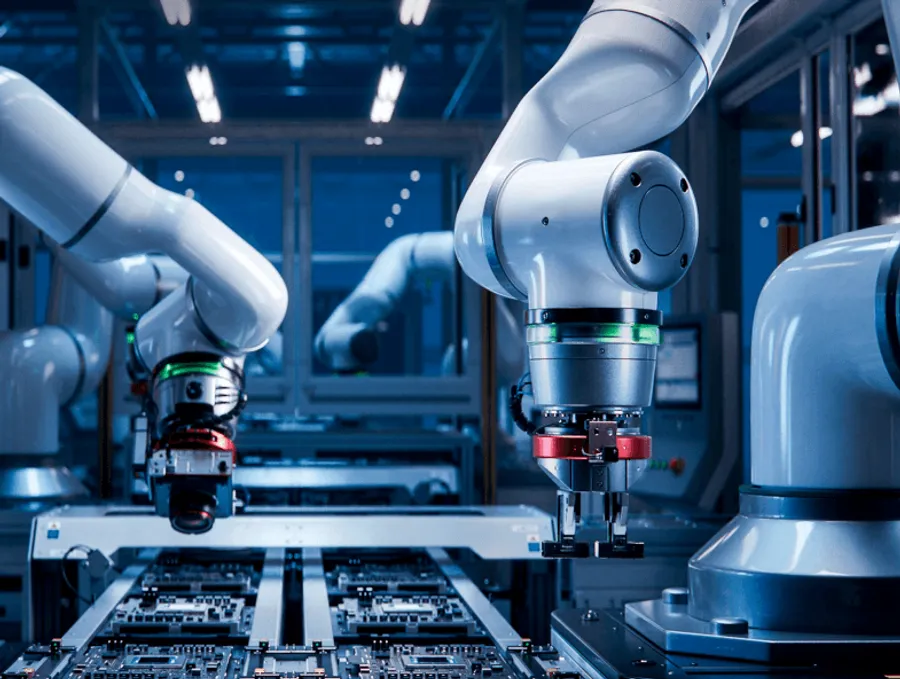WEF & BC: How To Develop a Strategy for Agentic AI

The white paper published by World Economic Forum & Boston Consulting lays out the rise of agentic AI and its transformative potential for manufacturers
'Frontier Technologies in Industrial Operations: The Rise of Artificial Intelligence Agents' was released by the World Economic Forum in collaboration with the Boston Consulting Group on the 21st of January 2025.
The whitepaper covers the growth of 'frontier technologies', Industry 4.0 innovations that are driving profound change in manufacturing.
Amongst the rapid pace of this change, the whitepaper stops to answer a critical questions for manufacturers.
That question? why they should adopt frontier technologies and do it now.
"It’s important to address two pressing questions – why focus on frontier technologies, and why now?," says Kiva Allgood Head, Centre for Advanced Manufacturing and Supply Chains; Member, Executive Committee, World Economic Forum.
"The answer is simple yet profound – these innovations, like others in the Intelligent Age, drive boundary-breaking advancements that push the limits of what’s currently possible, facilitating collaborative intelligence and amplifying human ingenuity. In doing so, they provide competitive advantages and catalyse sustainable growth.
"Manufacturers that fail to fully harness the transformative power of frontier technologies in operations and supply chains will surely fall behind."
To demonstrate this, the whitepaper focuses on one frontier technology in particular: agentic AI, arguing it will drive sector-wide transformation.
AI-enabled manufacturing as the futureThe whitepaper expresses a belief that industrial operations on the whole are are likely to evolve to an AI-centric model where humans primarily orchestrate and oversee the labour of autonomous technologies and systems.
This evolution will be down to myriad factors, including increased labour costs and the workforce shortages due to the existing skills gap.
There is also the growing imperative of sustainability, with AI a vital tool to improve energy efficiency and waste reduction to meet decarbonisation goals.
We're also seeing growing demand for customisation from consumers, that AI can help manufacturers address.
In addition to this manufacturers will increasingly adopt AI to better navigate geopolitical disruption and streamline fragmented supply chains.
To do this the whitepaper argues they need a nuanced understanding of AI's value and have critical strategies in place to implement and scale it.
In understanding this value, manufacturers must be familiar with the two types of agentic AI likely to have the biggest impact on operations.
Virtual AI agents and embodied AI agentsAgentic AI is a subset of artificial intelligence capable of adapting, learning and making decisions without constant human supervision.
There are many different subsets of agentic AI designed to enhance digital applications and physical systems.
Functioning in a continuous cycle of observation, planning and acting, these agents collect data from a multitude of industrial sources, reason and evaluate using sophisticated modules and then execute decisions.
The whitepaper highlights two as driving profound change in manufacturing: virtual AI agents and embodied AI agents.
- Virtual AI agents
This is AI that enables software applications to autonomously reach specific goals in digital environments.
This AI typically takes the form of assistants, advisors or automation agents and can be used to independently direct processes and machinery in factory environments.
- Embodied AI agents
This is AI that equips physical systems such as industrial robots with the ability to perceive and act within physical environments.
By allowing for dynamic and complex movements, this AI will help overcome the existing limitations of robot automation.
The adoption and integration of these agents, like with other Industry 4.0 technologies is a journey.
A journey which the whitepaper emphasises is both complex and high stakes.
"Although the pursuit of frontier technologies is not novel, the stakes are now higher than ever," argues Daniel Küpper Managing Director and Senior Partner, Boston Consulting Group (BCG).
"The challenges associated with identifying and evaluating these technologies and integrating them into long-term strategies have grown more complex as the pace of innovation accelerates.
"Forward-thinking industries, technology leaders and academic institutions are pioneering such advancements.
"Yet, even with the growing accessibility of tools like generative AI, manufacturers still face a crucial question – how will frontier technologies drive real, measurable impact in day-to-day operations?"
Determining if frontier technologies will drive real, measurable value comes down to determining which innovations will be long-lasting and which are transient trends.
Accomplishing this is vital to determine where to focus investments and development efforts, maintaining future competitiveness amongst a landscape of relentless change.
This is no easy task.
)
)
)
)